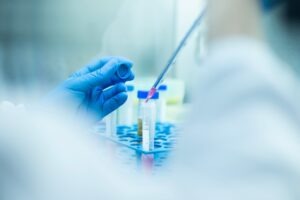Sandoz, a Novartis division and a global leader in biosimilars, announced that it has entered into an agreement to commercialize a proposed trastuzumab biosimilar.

Image: Sandoz is set to commercialize proposed trastuzumab biosimilar. Photo: courtesy of dream designs / FreeDigitalPhotos.net.
Subscribe to our email newsletter
This medicine is currently in Phase III clinical development for treatment of human epidermal growth factor receptor 2 positive (HER2+) breast and specific gastric cancer tumors.
The agreement between Sandoz and EirGenix, a biotechnology manufacturing and development company that aspires to provide high-quality medicines for individuals and society, aims to bring to market a proposed biosimilar trastuzumab.
EirGenix will maintain responsibility for development and manufacturing, and Sandoz has the right to commercialize the medicine upon approval in all markets excluding China and Taiwan.
According to the terms of the agreement, EirGenix will receive an upfront payment on signing, milestone payments, and is entitled to receive profit share payments for sales in the territories. This structure allows Sandoz to keep in-house resources focused on bringing forward a robust internal pipeline.
The collaboration further expands the existing Sandoz oncology portfolio of four oncology biosimilar medicines, while enabling the company to further develop its strong hospital presence. Other specific terms of the agreement are confidential.
“Every year, approximately 300,000 people worldwide are diagnosed with HER2-positive breast cancer, which tends to spread more quickly than HER2-negative tumors, making swift treatment important. While targeted therapy is available, high out-of-pocket costs lead to limited treatment in the US and reimbursement issues have resulted in varying uptake in Europe”, said Stefan Hendriks, Global Head of Biopharmaceuticals, Sandoz.
“Introducing biosimilars can help create earlier and expanded access to this important medicine, which is why I am so excited about the potential for this collaboration.”
Cancer places a significant and growing burden on healthcare systems around the world with the annual economic cost in 2010 estimated at approximately USD 1.16 trillion[3]. Biologics have helped to advance cancer care, and the reference medicine for trastuzumab is one of the top four cancer medicines by sales in 2018 with sales of approximately USD 6.9 billion.
With the loss of exclusivity for the reference medicine, there continues to be a significant opportunity to introduce biosimilar competition to generate savings and increase access to this important medicine.
Sandoz biosimilars are helping patients, particularly in immunology, oncology and endocrinology, access medicines sustainably and affordably.
The division has a leading global portfolio with eight marketed biosimilars and a further 10-plus in development. Half of the marketed biosimilar medicines are in oncology, with three in supportive cancer care and one for the treatment of blood cancers. Additional investigational oncology biosimilars are in the pipeline. Broadening the Sandoz oncology offering has benefits for payers, patients and healthcare systems overall.
Source: Company Press Release
 Advertise With UsAdvertise on our extensive network of industry websites and newsletters.
Advertise With UsAdvertise on our extensive network of industry websites and newsletters.
 Get the PBR newsletterSign up to our free email to get all the latest PBR
news.
Get the PBR newsletterSign up to our free email to get all the latest PBR
news.

